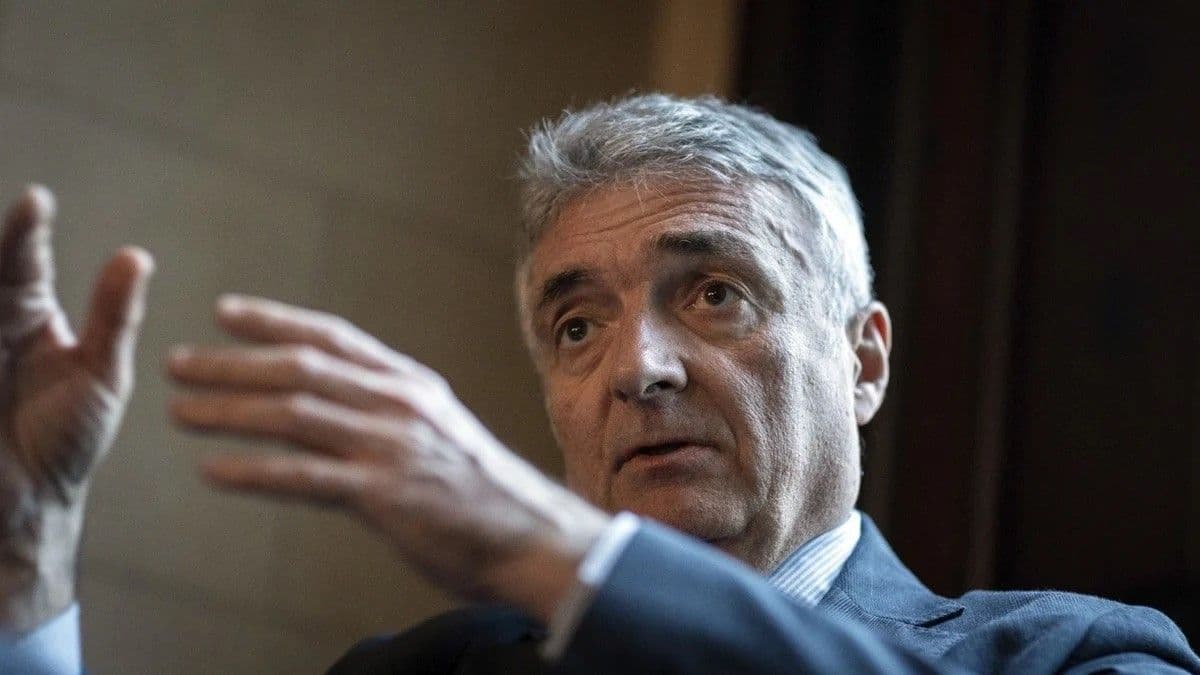Lifestyle
Vlahovic Critiques Government’s Response Amid Political Turmoil

Miodrag Vlahovic, the former Minister of Foreign Affairs of Montenegro, has voiced strong criticism of the current government, highlighting what he perceives as a lack of effective leadership during a time of crisis. In a post on social media platform X, he stated that while “the village is burning,” the opposition is merely waving flags and failing to demand the resignation of the government.
Vlahovic’s comments come against a backdrop of political unrest in Montenegro. He pointed to the government’s recent decision to abruptly revoke a visa-free regime with Turkey, a move he described as hasty and prompted by an alleged fabricated attack involving unidentified Azerbaijani individuals. He accused European bureaucrats of enthusiastically supporting what he termed the “progress of Montenegro,” even as significant issues remain unresolved.
Political Landscape Under Scrutiny
Vlahovic emphasized the inactivity of the opposition, suggesting they are waiting for a leader to prepare scripted responses for parliamentary sessions. This, he argues, creates the illusion of a genuine conflict between political factions. He remarked on the actions of the Democratic Party of Socialists (DPS) and the Party of Economic Prosperity (PES), suggesting that their approach undermines genuine political discourse.
Furthermore, he criticized the Ministry of Foreign Affairs for drafting a “Foreign Policy Strategy for the Period 2026-2029,” which he deemed a unique phenomenon in itself. Vlahovic pointed out that while official diplomats engage in discussions about EU aspirations, there is a notable lack of tangible progress or accountability.
In his remarks, Vlahovic also addressed the role of independent journalists in Montenegro, asserting they often produce documents labeled as “Non Paper” without adequate context. He expressed concern over the apparent neglect of critical processes and situations that could significantly impact the country’s future.
Concerns Over Diplomatic Relations
Ambassador Johan Satler, a known ally of Montenegro, has been commended for upholding antifascist values during his tenure. Vlahovic noted that while Satler praises the country’s traditions, local political figures may misinterpret his diplomatic tone. He referred to this dynamic as the “Karin Kneissl syndrome,” suggesting that any dissent from the government line is swiftly labeled as extremist.
He concluded his critique by lamenting that if it were not for those deemed “unacceptable,” Montenegro could prosper more fully. The former diplomat’s statements reflect broader concerns regarding the effectiveness of current governance and the response to emerging challenges within the region.
Vlahovic’s outspoken commentary sheds light on the complexities of Montenegro’s political climate as the nation navigates both internal strife and external diplomatic relations.
-

 Health3 months ago
Health3 months agoNeurologist Warns Excessive Use of Supplements Can Harm Brain
-

 Health4 months ago
Health4 months agoFiona Phillips’ Husband Shares Heartfelt Update on Her Alzheimer’s Journey
-

 Science2 months ago
Science2 months agoBrian Cox Addresses Claims of Alien Probe in 3I/ATLAS Discovery
-

 Science2 months ago
Science2 months agoNASA Investigates Unusual Comet 3I/ATLAS; New Findings Emerge
-

 Science2 months ago
Science2 months agoScientists Examine 3I/ATLAS: Alien Artifact or Cosmic Oddity?
-

 Entertainment2 months ago
Entertainment2 months agoLewis Cope Addresses Accusations of Dance Training Advantage
-

 Entertainment5 months ago
Entertainment5 months agoKerry Katona Discusses Future Baby Plans and Brian McFadden’s Wedding
-

 Science2 months ago
Science2 months agoNASA Investigates Speedy Object 3I/ATLAS, Sparking Speculation
-

 Entertainment5 months ago
Entertainment5 months agoEmmerdale Faces Tension as Dylan and April’s Lives Hang in the Balance
-

 World3 months ago
World3 months agoCole Palmer’s Cryptic Message to Kobbie Mainoo Following Loan Talks
-

 World4 weeks ago
World4 weeks agoBailey and Rebecca Announce Heartbreaking Split After MAFS Reunion
-

 Science2 months ago
Science2 months agoNASA Scientists Explore Origins of 3I/ATLAS, a Fast-Moving Visitor









